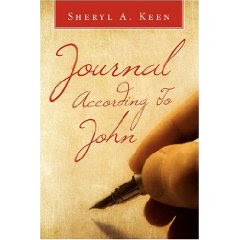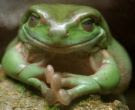
About the Author:
Sheryl A. Keen has a bachelor’s degree in History with a minor in English Literature from the University of the West Indies. She lives in Canada where she works in Administration.
In addition to prose, Sheryl also writes poetry. When she is not writing, one of her other loves is painting.
You can visit Sheryl A. Keen’s website at http://www.sherylkeen.com/
About the Book:
Following a nasty bar brawl, John, a twenty-eight-year-old man, follows a close friend’s advice and begins keeping a journal. He’s recently divorced from his wife, Debbie, and he hopes the journal will provide a tool with which to make sense of his brief, failed marriage and to determine why he is so emotionally challenged.
As a therapist specializing in behavioral issues, he knows he has to pull his own life together. If he tells people to clean up their own lives, modify their thoughts, and learn new, more appropriate behaviors, he knows that he’s got to step up and follow his own advice. Early on, he realizes that his mother, the curator of a gallery that specializes in steel art and other nontraditional works, has largely shaped his thoughts and actions. But just how much can he blame her for his current state of affairs?
Soon the words in the journal are flowing easily and quickly. When painful thoughts are no longer avoided and dreams provide fuel for his writing, the journal takes on a life of its own. Will John discover the reasons for his dysfunctional situation? Can keeping a journal help him improve his life?
I was lucky enough to get the author to sit down and answer a few questions. Here's what she had to say:
Could you please tell us a little about your book?
My book is “Journal According to John.” It tells the story of John, a twenty-eight year old man who is recently divorced. When he finds himself miserable and uncharacteristically engaging in bar fights, John finally takes a friend’s advice and begins keeping a journal. He hopes the journal will provide a tool with which to make sense of his brief failed marriage and to determine why he is so emotionally challenged.
Early on he realizes that his mother, the curator of a gallery that specializes in steel art and other nontraditional works, has largely shaped his thoughts and actions. He continually blames her for his current state of affairs. As he continues to write, he begins to take a closer look at his own actions and decisions and soon he starts to make interesting discoveries about himself.
The questions are many. How much can he blame his mother for his problems? Will John discover the reasons for his dysfunctional situation? Can keeping the journal help him improve his life?
The novel really looks at the complex relationship between a son and his mother.
Did something specific happen to prompt you to write this book?
There was nothing specific that happened. I just thought it might be interesting to tell an emotional story from a male’s perspective and to tell it in a way that is not very male. I am not sure how many men write in their personal journals. Not too many I suppose. The story is told through John’s actual journal entries and this is ironic because it is a direct antithesis of the manhood that he is trying to find. It would be interesting to find out if John does come to terms with his masculinity while writing in this way.
The good thing about the story is that it lends itself to intimacy between the readers and the main character because they get to look directly into John’s journal.
Your biggest critic?
My biggest critic is me. I know myself, my work and story that I want to tell better than anyone else. The work that I put out there is representative of me so I am always trying to find areas to improve so that when people see my name they can associate it with good work.
Do you have any rituals you follow when finishing a piece of work?
I don’t have any rituals but I usually have two or three ways in which the story could end. When this happens, I always spend a lot of time obsessing over the ideal ending. As a rule, I try to use a realistic ending even if it’s not a happy one.
Who has influenced you throughout your career as a writer?
I have been influenced by the great Literature teachers that I have had in high school. They made books fun and they made them relatable to everyday life. The way in which they have been able to impart lessons and ideas from great books further cemented my enthusiasm to be a writer. They also taught me to think in a critical way. Although those teachers are not in my life right now, I can still hear their voices in my head.
Do you have any advice for writers or readers?
My advice for writers is to write even when you are not motivated. The act of writing can serve as motivation. It’s sometimes difficult to come up with a single line but once you start other lines will come.
Also, never give up on the dreams and goals that you have set for yourself as a writer. Rejection of any sort is simply a setback. Belief in your work and take yourself seriously and others will follow suit.
What do you feel is your biggest strength?
I am detail oriented. Sometimes when you go to an interview you are asked: are you a details person or a big picture person. It’s a funny question because you cannot have a big picture without details. It’s because I can see the big picture why I would know which details to put in and why I would know how important the details are.
The details are important in writing to give readers a sense of place, time and emotions. Moreover, life is made up of just that - details.
You know the scenario – you’re stuck on an island. What book would you bring with you and why?
I would take “To The Lighthouse” by Virginia Woolf. This is one of my favourite books because it explores the nature of human consciousness. If I am stuck on an island, I might be there for a while and this is not a novel that one hurries to read. It’s also a novel that has the lighthouse as a strong image and a lighthouse can represent enlightenment. Hopefully, I might find illumination about something in my life while stuck on an island with only myself and Virginia Woolf.
There is a theme of light and dark when it comes to a lighthouse. It’s possible that I would have some anxiety about being stuck on an island and this would be reflective of life’s frequently altering situations which can be stable at one moment and uncertain in the next. Obviously I would have a lot of time to think and I would want to gain some insight while I am there.
What is the most important lesson you have learned from life so far?
We have to take risks to obtain the things that we want. Nobody ever achieve greatness by playing it safe. When we go out on a limb, most times the limb will bend to accommodate us. It basically comes down to fear or faith.
What is your favorite past-time?
My favourite pastime is painting. I tend to think about it as a complement to my writing because the process is similar in that there are a lot of details used to create a big picture. In painting I use color and composition and in writing I choose words and a certain way of putting them together. They both end up giving the reader or the viewer a certain point of view.
I carry a camera everywhere because I never know what I’ll see. So I take pictures and then create paintings from them.
5 years ago
![Reblog this post [with Zemanta]](http://img.zemanta.com/reblog_e.png?x-id=5df7d9b0-1ada-4148-b716-5099cddda7f3)





0 comments:
Post a Comment